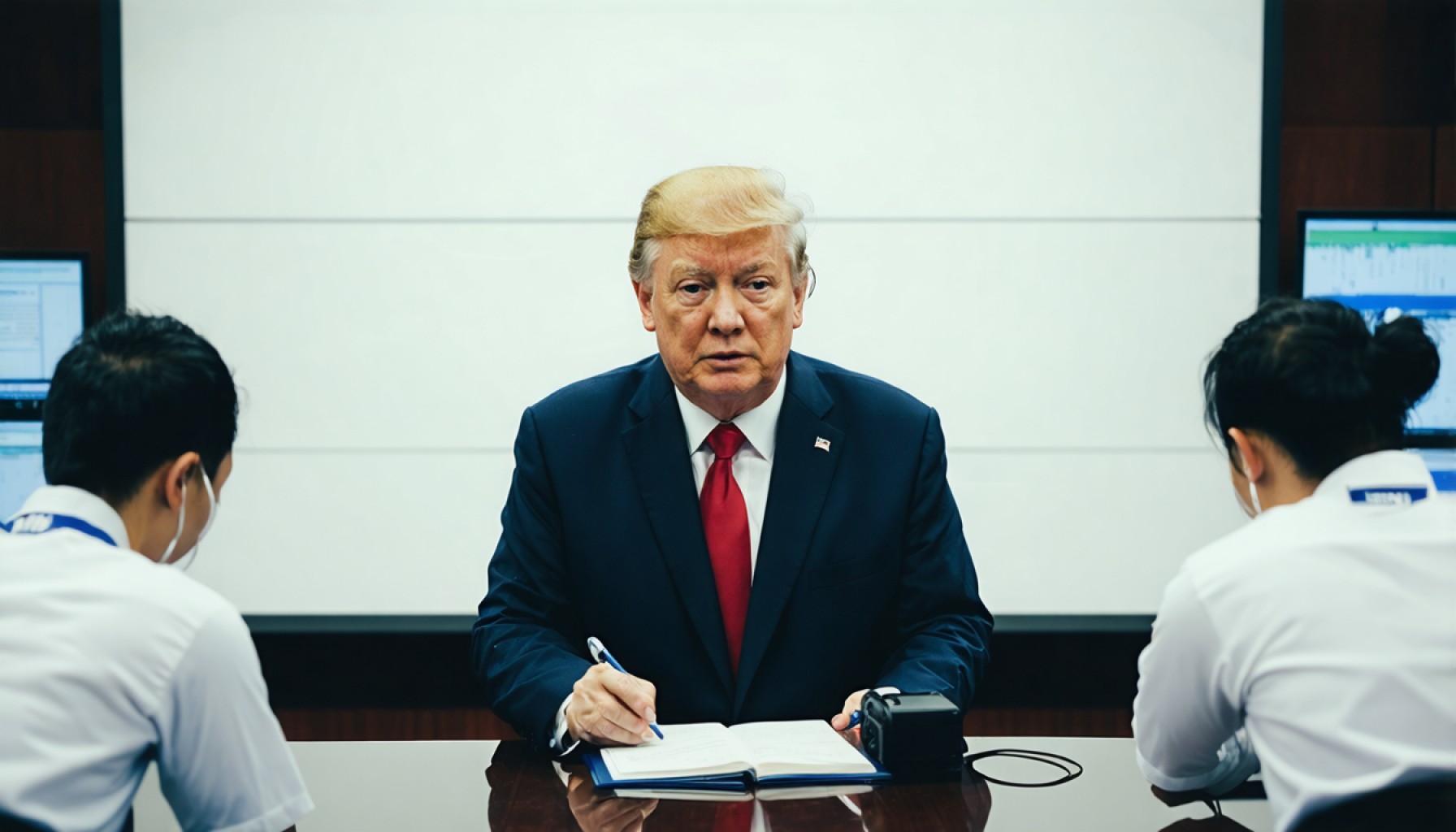- Jiang Chaoliang, a notable Chinese politician, is under investigation for serious misconduct allegations.
- He holds significant positions within the National People’s Congress Standing Committee and the Agriculture and Rural Affairs Committee.
- The Central Commission for Discipline Inspection and the National Supervisory Commission are conducting the investigation.
- Jiang’s political journey includes roles as Governor of Jilin Province and Party Secretary of Hubei.
- The investigation highlights the strict accountability standards for political figures in China.
- This case serves as a cautionary tale about the consequences of misconduct, regardless of one’s influence or achievements.
The corridors of power in China have long been shrouded in mystery, but recently they were jolted by a revelation that sent ripples throughout the nation. On February 21, news emerged that Jiang Chaoliang, a towering figure in the realm of Chinese politics, is entangled in a web of serious misconduct allegations. As a key player within the National People’s Congress Standing Committee and a Vice Chairman of the Agriculture and Rural Affairs Committee, Jiang’s influence spread far and wide.
Born in the late summer of 1957, Jiang carved an impressive path through the political landscape. His journey took him from the governorship in Jilin Province to becoming the Party Secretary of Hubei, key roles that underscored his importance. Yet, the inviolable tides of discipline and integrity have turned against him as he now faces a thorough inquiry by the Central Commission for Discipline Inspection and the National Supervisory Commission.
The probing lenses of these influential bodies are currently scrutinizing the depths of his involvement in activities that defy the principles upon which his office stands. This investigation not only marks a significant moment in Jiang’s career but also serves as a potent reminder of the intense standards that political figures must uphold.
Amidst China’s vast bureaucratic lattice, Jiang’s story cautions against the hubris that can accompany power. It underscores an omnipresent truth: no individual, regardless of their stature or past accolades, is beyond the reach of accountability. As the investigation unfolds, it reinforces the notion that principles of justice are steadfast, echoing a narrative that reverberates well beyond the nation’s borders.
Unveiling the Dynamics of Political Accountability in China
Controversies and Limitations of Chinese Political Oversight
Understanding the Investigation Process: In China, political accountability has become increasingly emphasized under President Xi Jinping’s anti-corruption campaign. The Central Commission for Discipline Inspection (CCDI) is the primary body responsible for examining party member conduct, often working alongside the National Supervisory Commission. Their investigations can encompass a wide range of misconduct, from financial misappropriations to breaches of party protocols.
Impact on Governance and Public Perception: High-profile investigations, such as that of Jiang Chaoliang, serve to bolster public trust in governance while simultaneously showcasing the ruling party’s commitment to integrity. However, critics argue that such investigations may also have limitations, potentially leading to internal power struggles or serving as tools for political purging.
Real-World Use Cases of Anti-Corruption Measures
Effect on Local Governance: The infusion of anti-corruption measures tends to decentralize power from influential figures, often redistributing it to lower-level officials. This can encourage transparency but may also lead to bureaucratic inefficiencies as officials become overly cautious.
Influence on International Relations: Demonstrating a keen interest in upholding integrity can enhance China’s global image as a reliable partner. However, apprehensions about lack of transparency and due process in these investigations might deter foreign investments or collaborations.
Market Forecasts and Industry Trends
Impact on Economic Policies: With leading political figures under investigations, policies, especially in agricultural and rural development where Jiang Chaoliang was a significant influence, may experience shifts. Investors must track policy changes closely to align with emerging trends and opportunities.
Future of Anti-Corruption Campaigns: Experts forecast a continuation of stringent anti-corruption initiatives, which will likely target not just traditional government roles but also encompass expansive sectors like technology and finance where corruption perceptions are high.
Reviews and Comparisons
Comparing Global Anti-Corruption Efforts: Unlike Western democracies that rely heavily on independent judicial processes, China’s campaign is more centralized, raising questions about checks and balances. However, this centralized approach allows for swift and decisive actions, as seen with Jiang’s case.
Public Response and Trust: While the Chinese method can enhance short-term trust in governance, the lack of transparency and public involvement may hinder long-term societal trust and stability.
Tutorials & Compatibility with Global Standards
How to Align with International Anti-Corruption Standards: Businesses operating in China should ensure compliance with both local laws and international standards. Joining international anti-corruption initiatives like the United Nations Global Compact can provide guidance.
Pros & Cons Overview
Pros:
– Promotes a culture of accountability and ethical governance.
– Can enhance global confidence and investment.
Cons:
– Potential for misuse as a political tool.
– May induce bureaucratic slowdowns.
Actionable Recommendations
1. Stay Informed: Constantly monitor changes in policies and regulations stemming from such investigations to anticipate shifts in the business environment in China.
2. Adopt Best Practices: Companies should embed strict compliance protocols and regular audits to ensure adherence to both local and international anti-corruption policies.
3. Engagement: Engage with industry groups and organizations that focus on promoting transparency and integrity within Chinese markets.
Understanding these dynamics enhances both predictability and stability for entities engaging with China, allowing them to navigate complexities with informed strategies. For further insights into China’s economic and political landscape, visit the China Daily and other reputable sources on Chinese governance.
